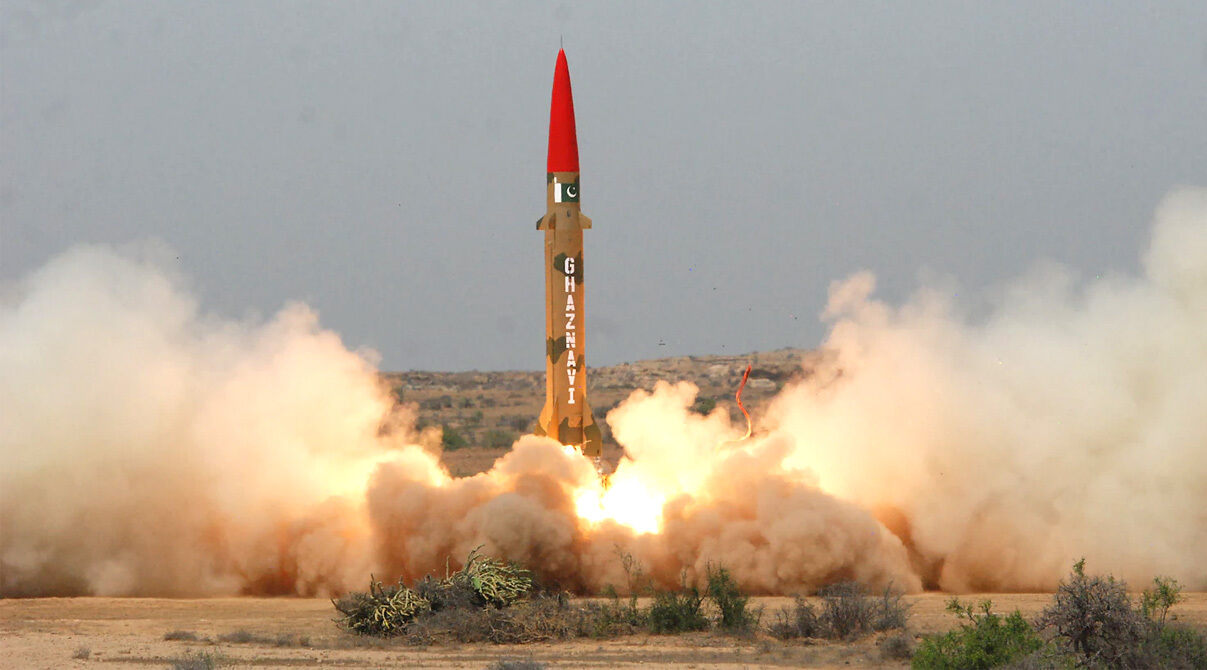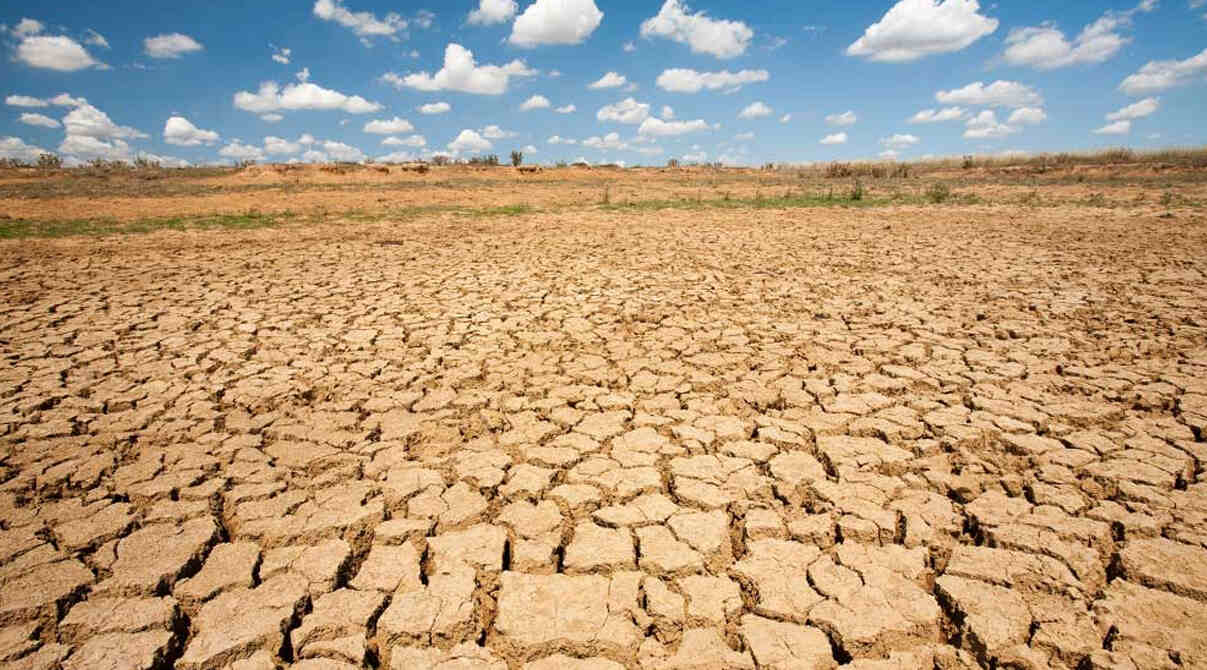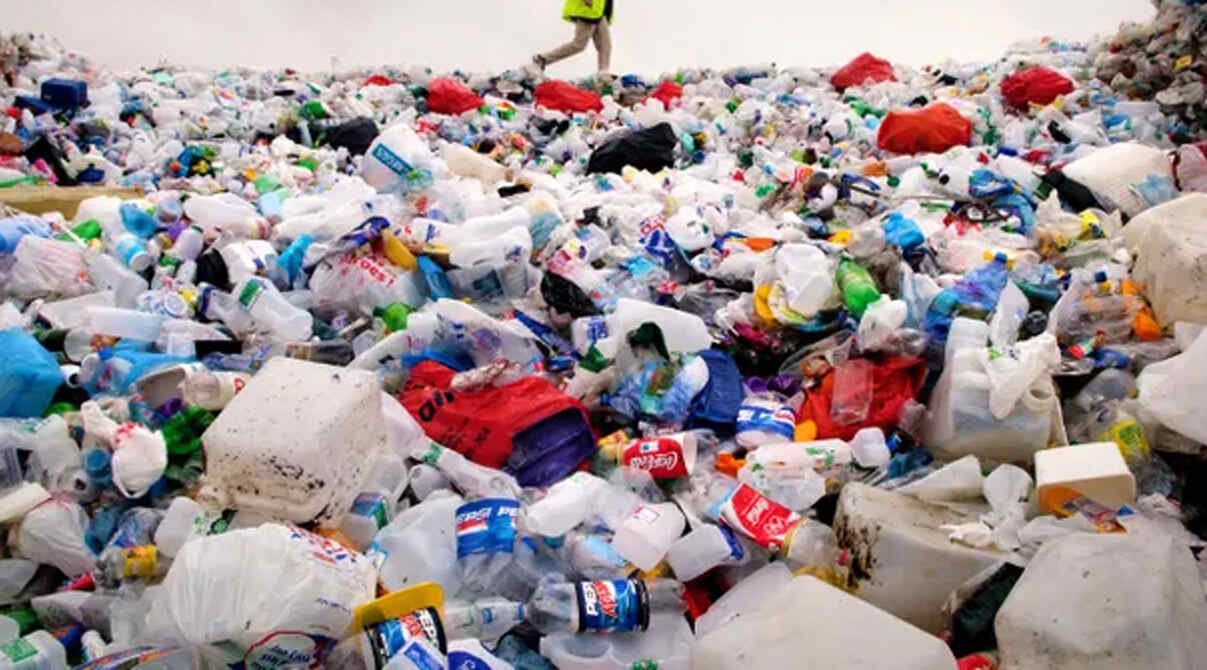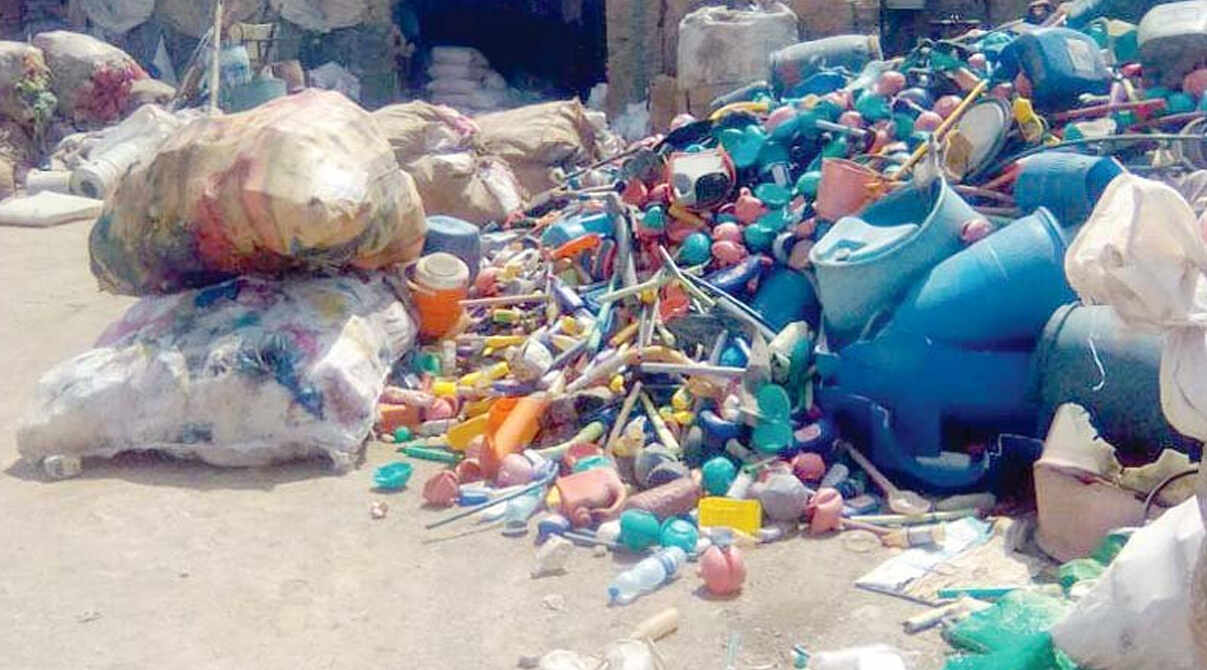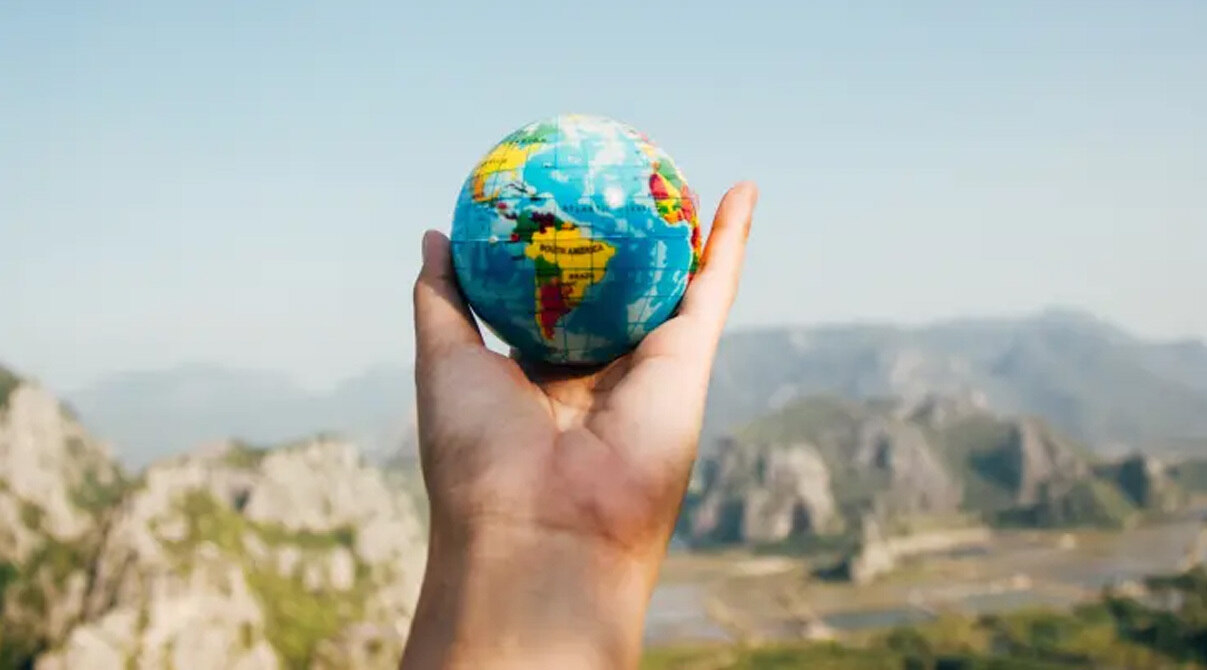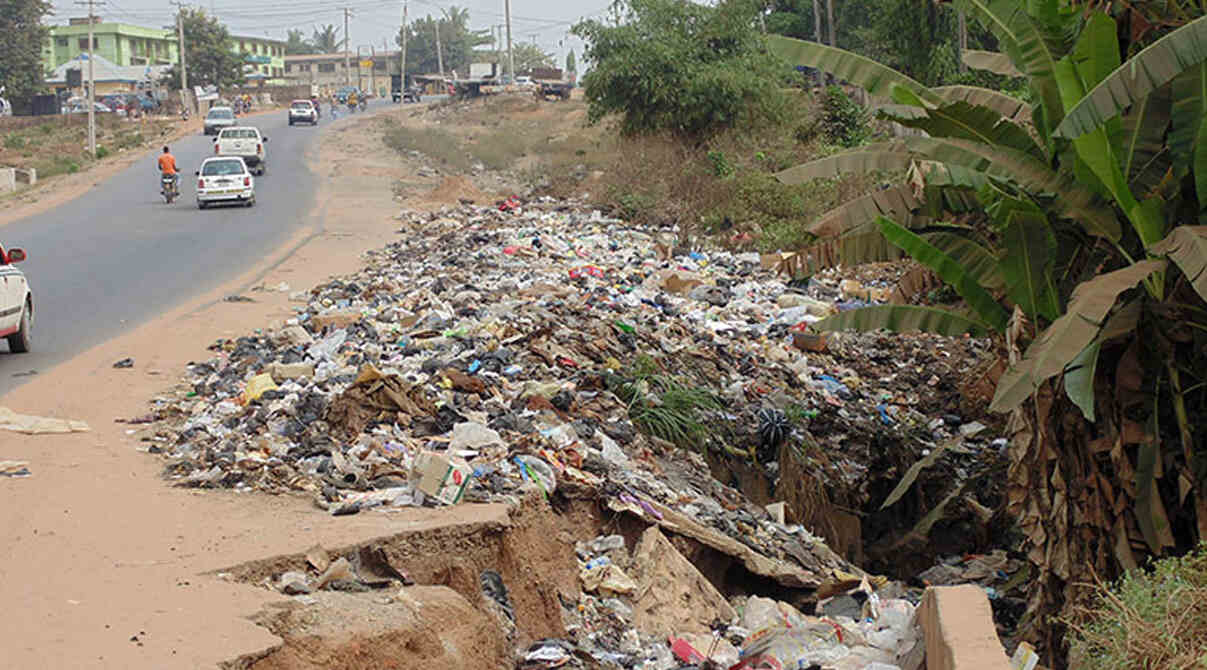The Earth’s condition is devastating. The planet is overpopulated, the resources are running out, and the environment is being polluted at an alarming rate. The air is polluted, the water is dirty, and the land is being destroyed. The Earth is losing its ability to support life. The situation is critical, and we definitely need to start making recycling efforts.
Humans are the cause of the Earth’s condition. We pollute the air with our factories, we pollute the water with our waste, and we destroy the land with our development. We are consuming the Earth’s resources at an unsustainable rate.
The Earth’s condition is not going to improve unless we take action. We need to reduce our pollution, conserve our resources, and protect our planet. We need to do this for ourselves and for our future generations.
Why Should We Care About Saving the Earth?
There are many compelling reasons to care about saving the earth. For one, the earth is our home. It’s the only place we have to live, and it’s where we raise our families. We depend on the earth for our food, water, and air. We also rely on it for our livelihoods. The health of the earth directly affects our own health and well being.
In addition to being our home, the earth is also an amazing place full of beauty and diversity. It’s important to preserve this natural heritage for future generations to enjoy. Finally, we need to protect the earth because it’s essential for sustaining all life on this planet. All creatures rely on the earth’s resources, and we have a responsibility to steward them wisely.
What is Causing Climate Change?
Climate change is one of the most pressing issues of our time. There are a number of factors that contribute to climate change, but the primary causes include greenhouse gas emissions, global warming, deforestation, improper waste management, industrialization, and burning fossil fuels.
Greenhouse Gas Emissions
There is no question that greenhouse gas emissions are causing climate change. Greenhouse gases like carbon dioxide and methane trap heat in the atmosphere, causing the Earth’s average temperature to rise
The Intergovernmental Panel on Climate Change, which is the world’s leading scientific body for assessing the science related to climate change, has said that it is “extremely likely” that human activities are the main cause of global warming since the 1950s.
Greenhouse gas emissions come from a variety of sources, including power plants, transportation, agriculture, and land use. As we continue to emit more and more greenhouse gases into the atmosphere, the Earth’s temperature will continue to rise, causing a host of impacts like more extreme weather events and sea level rise.
Global Warming
The scientific consensus is that human activity, namely the burning of fossil fuels, is causing the Earth to warm at an unprecedented rate. This warming is resulting in a number of other changes to the climate, including more extreme weather events, rising sea levels, and shifts in wildlife patterns.
People around the world already feel the effects of climate change. In some cases, they are life-threatening. For example, more frequent and intense heat waves have led to an increase in heat-related deaths. Extreme weather events like hurricanes and floods have displaced millions of people and caused billions of dollars in damage.
Deforestation
Deforestation is one of the leading causes of climate change. Trees play a vital role in absorbing carbon dioxide from the atmosphere and releasing oxygen back into the air. When people cut down trees, they release stored carbon dioxide, which contributes to the greenhouse effect and global warming.
In addition to carbon dioxide, trees also help to regulate water vapor in the atmosphere. They release water vapor through their leaves, which helps to cool the Earth’s surface. Without trees, there would be less water vapor in the atmosphere, causing the Earth’s surface to heat up even more.
Deforestation is a major problem that we need to address in order to slow down climate change. We need to find ways to stop cutting down trees and start planting more. We also need to educate people about the importance of trees in our fight against climate change.
Improper Waste Management
A new study has found that improper waste management is causing climate change. The study, conducted by the University of Michigan, looked at the relationship between waste management and climate change. It found that when we don’t manage waste properly, it releases greenhouse gases into the atmosphere, which contributes to climate change.
The study also found that improper waste management is a major contributor to air pollution. When waste decomposes, it releases methane gas into the atmosphere. Methane is a powerful greenhouse gas that traps heat in the atmosphere and contributes to climate change.
Improper waste management is a global problem, and it’s one that needs an urgent solution. Climate change is a threat to our planet, and we need to do everything we can to reduce its impact. Proper waste management is one way we can make a difference.
Industrialization
A new study has found that industrialization is a leading cause of climate change. An international team of scientists conducted the research. It looked at a variety of factors that contribute to climate change and found that industrialization is one of the most significant.
The study found that industrialization has led to an increase in greenhouse gas emissions, which are a major contributor to climate change. Additionally, industrialization has also resulted in a loss of forests and other natural habitats, which can help to mitigate the effects of climate change.
The findings of this study underscore the importance of reducing greenhouse gas emissions from industrial sources in order to slow the pace of climate change. In addition to reducing emissions, it is also important to protect and restore natural habitats so that they can continue to provide valuable services in the fight against climate change.
What are the Effects of Climate Change?
Climate change is a complex problem with many interconnected aspects, but at its heart is the question of how we use and abuse the planet’s limited resources. We all feel the effects of climate change, and the situation is only going to get worse as time goes on.
These effects are far-reaching and long-lasting, and they have the potential to cause great harm to people, animals, and the environment. Climate change is already causing extreme weather events, rising sea levels, melting glaciers, and more. Some of the major impacts of climate change include;
Hotter Temperatures
One of the most obvious effects of climate change is rising temperatures. This may not seem like a big deal to some people, but it can have a huge impact on both humans and animals. Higher temperatures lead to more heat waves and droughts, which can cause death, displacement, and suffering. They also lead to melting glaciers and ice caps, which raises sea levels and increases the risk of flooding. If global warming continues unchecked, the world’s oceans could rise around 6 meters by 2100.
Increased Drought
Climate change is causing an increase in drought conditions around the world. This is due to the fact that warmer temperatures lead to evaporation, which reduces the amount of water available for plants and animals. The effects of drought are wide-ranging and can include food shortages, wildfires, and Dust Bowl conditions. Droughts are also a major factor in water wars and conflict. As climate change continues to cause global temperatures to rise, droughts are likely to become more common and more severe, with devastating consequences for both humans and the natural world.
More Severe Storms
As our climate continues to warm, we can expect more frequent and more severe storms. This is because a warmer atmosphere can hold more moisture, and that moisture is the fuel that powers storms. We’ve already seen an increase in the intensity of storms like hurricanes and typhoons, and this trend is expected to continue.
In addition to more powerful storms, we can also expect more extreme weather events like heat waves, droughts, and floods. These events are often costly and even deadly, so it’s important to be prepared. Climate change is a serious problem that we need to start addressing now if we want to protect ourselves from its worst effects.
Not Enough Food
A new study has found that climate change could lead to a sharp decrease in the global food supply. The research, which was published in the journal Nature, looked at how different climate scenarios would impact crop yields around the world.
The study found that even if we are able to meet the Paris Agreement’s goal of limiting global warming to 2°C, there will still be a significant decrease in the amount of food that can be produced. This is because higher temperatures and changes in precipitation will lead to more droughts and floods, which will damage crops.
If we don’t take action to combat climate change, the situation will only get worse. The study found that under a business-as-usual scenario, where emissions continue to rise unchecked, crop yields could decline by up to 30%.
Loss of Species
Loss of species is one of the most serious effects of climate change. As temperatures rise and weather patterns become more extreme, many animals and plants are struggling to survive. Some species are already extinct, while others are on the brink.
The loss of species has a ripple effect on ecosystems. When one type of plant or animal disappears, it can disrupt the entire food chain. This can lead to a decline in biodiversity, which makes ecosystems more fragile and less able to withstand changes.
The loss of species also has an impact on humans. We rely on many plants and animals for food, medicine, and other resources. As we lose them, we lose an important part of our own identity. The loss of species is a tragedy not just for the natural world, but for us as well.
Poverty and Displacement
Climate change is already having an impact on the world’s most vulnerable people. Poverty and displacement are two serious effects of climate change.
The poorest people in the world are the most vulnerable to the effects of climate change. They are least likely to have the resources to adapt to changes in their environment and are more likely to be displaced by extreme weather events.
Climate change is expected to increase poverty and displacement in the coming years. The number of people living in poverty is expected to increase by up to 122 million by 2030, while the number of people displaced by climate-related events could reach 1 billion by 2050.
Poverty and displacement have a serious impact on people’s health and well-being. Poverty increases the risk of illness and death, while displacement can lead to trauma and mental health problems.
More Health Risks
Climate change is already having an impact on our health. The extra heat can make us more likely to experience dehydration, heat exhaustion, and heat stroke. It can also worsen respiratory problems and trigger allergies and asthma attacks.
A new study has found that climate change is having a significant impact on our health, and the effects are only going to become more pronounced in the years to come. The research, which was conducted by a team of international scientists, looked at a number of different health risks that are being exacerbated by climate change. These include heat-related illnesses, respiratory problems, vector-borne diseases, and mental health issues.
The findings are particularly worrying in light of recent reports that suggest the world is not on track to meet its targets for reducing greenhouse gas emissions. This means that the health impacts of climate change are only going to become more severe in the future.
Precipitation Patterns
Precipitation patterns are the result of a variety of atmospheric conditions, and they are constantly changing as the Earth’s climate changes. The amount, type, and distribution of precipitation can have major effects on ecosystems, agriculture, water supplies, and human activities.
Climate change is causing shifts in precipitation patterns around the world. These changes are resulting in more extreme weather events, such as more frequent and intense hurricanes, floods, and droughts. As global temperatures continue to rise, these changes are expected to become even more extreme.
Related: Pakistan Wins First Position in Wiki Loves Earth (WLE) 2015
These shifts in precipitation patterns can have devastating effects on communities and ecosystems. For example, droughts can lead to water shortages and wildfires, while floods can damage homes and critical infrastructure. It is important to understand how precipitation patterns are changing so that we can better prepare for the impacts of climate change.
The effects of climate change will only become more severe in the years to come. To mitigate the effects of climate change, it is essential that we take action now and prepare for the impacts of a changing climate.
The Benefits of Recycling
Reduce, reuse, recycle. It’s a mantra we’ve all heard since we were kids. And it turns out, it’s not just good for the environment – it’s good for our wallets as well. In today’s society, recycling is more important than ever. With the increasing amount of waste being produced each day, it’s essential that we recycle as much as possible to help reduce pollution and protect our environment.
There are many benefits of recycling, including reducing the amount of waste sent to landfill, saving energy, conserving resources, and preventing pollution.
Waste Reduction
Recycling helps to reduce the amount of waste sent to landfill. Every year, millions of tonnes of waste are sent to landfill sites around the world. This waste takes up valuable space and can release harmful gasses into the atmosphere. By recycling our waste instead of sending it to landfill, we can help to reduce the amount of space being taken up by rubbish and prevent these harmful gasses from being released.
Energy Conservation
Saving energy is another benefit of recycling. The process of recycling materials requires less energy than the process of producing new materials from scratch. This means that less fossil fuels are consumed and there is less environmental damage overall.
Resources Conservation
Recycling conserves resources by prolonging the life of existing materials and by requiring less energy to process than virgin materials. For example, recycling one ton of aluminum cans conserves the equivalent of 22 barrels (908 gallons) of crude oil. That’s enough oil to run a 100-watt light bulb for almost four months or a car for 3 days!
Preventing Pollution
In addition to saving energy, recycling also reduces pollution. The manufacturing process for virgin materials creates air pollution, water pollution, and solid waste. Some of these pollutants can cause cancer and other health problems. By recycling materials instead of sending them to landfills, we can help reduce the amount of pollution that is produced each year. This includes greenhouse gas emissions, water pollution, and air pollution.
Increase in Employment
Recycling not only helps the environment, but also provides good jobs for people who are looking for an alternative to traditional employment. There are many different types of jobs in the recycling industry, from sorting and processing materials to selling recycled products. With the increasing popularity of recycling, there is a growing demand for skilled workers in this field. People with recycling skills and knowledge about this process will be in high demand in the future.
Climate Change and Pollution in Pakistan
Pakistan is one of the world’s most populous countries, with over 220 million people. According to the World Bank, its population is projected to reach 207 million by 2050. However, Pakistan faces significant environmental challenges. One of the biggest is pollution.
Pakistan is one of the most polluted countries in the world. The air quality in Pakistan is poor, and the water quality is also not good. The government has not done enough to control pollution, and it is having a negative impact on people’s health. Pakistan ranked 176th out of 180 countries in the 2022 Environmental Performance Index. The country faces many environmental issues, including water pollution, air pollution, and deforestation.
Air pollution is a major problem in Pakistan. The country has some of the world’s highest levels of air pollution, which contributes to health problems like respiratory illnesses and heart disease. A large part of this pollution comes from vehicles, which are responsible for about 70% of Pakistan’s air pollution.
Water pollution is also a serious issue in Pakistan. The country’s water resources are under stress from a growing population and industrialization. This has led to water scarcity and contamination. Contaminated water can lead to waterborne diseases like cholera and typhoid.
As the population grows, so does the demand for resources, including wood for fuel and construction. This has led to large-scale deforestation in Pakistan, which in turn has contributed to environmental pollution. Deforestation has many negative consequences, including soil erosion, decreased water quality, and loss of biodiversity. In Pakistan, these effects are compounded by the fact that much of the country’s forests are located in areas that are already prone to floods and landslides. As more trees are removed, these natural disasters become more likely and more severe.
Hundreds of people die every year due to pollution-related diseases, such as respiratory infections and cancer. The number of people suffering from asthma and other lung diseases is also increasing.
Pollution is also having a negative impact on the economy. It is estimated that Pakistan loses billions of dollars every year due to pollution-related health problems and damage to crops and infrastructure.
A major example of the drastic impacts of climate change and pollution in Pakistan are the recent floods of 2022. Almost one-third of the entire country was under water. The floods impacted more than 30 million people and killed more than one thousand individuals, with 300+ children. Many houses, crops, buildings, and roads and bridges were destroyed. People lost their livelihood and got short of basic necessities, food and shelter.
The government needs to take drastic measures to reduce pollution levels in Pakistan. This includes investing in clean energy, controlling industrial emissions, and planting trees.
The Current State of Recycling in Pakistan
Over the recent years, the volume of the domestic market and the contribution of FDI have both grown moderately. The public and private sectors have and will start several small- to large-scale waste collection and waste treatment projects. Industry experts predict that for the foreseeable future, the domestic market will continue to provide both domestic and foreign businesses with considerable business prospects.
Although Pakistan has initiated several recycling projects to tackle climate change and overcome pollution, it still needs many more due to the massive population of the country.
There are some efforts being made to improve the situation. For example, Recycle Pakistan is a non-profit organization that is working to promote recycling and waste reduction in the country. They have set up recycling plants in several cities, and they offer education and training on recycling to businesses and individuals.
Zaffar Bhatti established one of the first recycling initiatives – the Green Earth Recycling in the 1980s. There was a strong push from the West to modernise the nation’s industry during the period of East and West Germany’s reunification. By that time, the West had already established many recycling facilities. Bhatti was keen to construct his facility using German equipment that was discarded in order to start over on this front.
Related: Kahwa Local Fondness for the Green Tea
Green Earth started to recycle plastic garbage into green furniture by gathering plastic waste and negotiating agreements with other groups to remove their plastic waste off their hands. This is the material that goes into making the very particular green seats and tables that you frequently see in parks. In 2021, Green Earth Recycling Pakistan has announced a collaboration Unilever Pakistan. They have mutually directed their efforts to collect and repurpose plastic waste into sustainable furniture.
Likewise, Coca-Cola also took part in recycling. In order to comprehend the PET bottle lifecycle in Pakistan, The Coca-Cola Foundation and partner WWF undertook Pakistan’s first scoping study spanning ten cities in 2020. According to the report, Pakistan produces more than 30 million tonnes of solid trash each year, of which more than 10% is plastic.
Coca-Cola has thoughtfully created a sustainable way to reuse plastic bottle waste as a result of undertaking the thought provoking Plastic Scoping Study. In collaboration with the Capital Development Authority (CDA), TeamUp, and the National Incubation Center (NIC), the Coca-Cola Export Corporation Pakistan has re-carpeted a 1-kilometer stretch of road in Islamabad, the capital of Pakistan, with more than 10 tonnes of recycled plastic, including PET bottles.
Several companies have initiated plastic recycling business in Pakistan. Al-Quraish Group of Industries, Combine Holding Pvt. Ltd., EverGreen Plastic Industries (Pvt) Ltd., HCT Polymers, International Industrial Services, Maqson Synthetics, Marhaba Plastic, Modern Plastic Industries, Noman International, Purely Green Industry Co, Ltd., Sanak Pakistan, SF Globally, Sharmeen Polymers, Shazil Pakistan Private Limited, United Exporters, etc are some of the leading companies that deal in plastic recycling.
In addition, the government has passed some laws to try to improve the environment, such as banning plastic bags and requiring industries to treat their effluent before releasing it into waterways. The National Electric Power Regulatory Authority (NEPRA) has affirmed a lucrative upfront tariff of US$.10007/kWh for waste-to-energy initiatives based on a 25-year operational time frame, with a maximum overall capacity of 250MW, in which the quota to every province and Federal Territory is kept at 50 MW each. These power plants can only be built during a 24-month window.
Why Have Recycling Efforts Failed in Pakistan in the Past?
The recycling industry in Pakistan has been facing many challenges over the years which have led to its failure. Some of the reasons for this include a lack of awareness about recycling, the high cost of recycling, and a lack of infrastructure.
Lack of awareness about recycling is one of the main reasons why recycling efforts have failed in Pakistan in the past. Most people are not aware of the benefits of recycling and how it can help reduce environmental pollution. In addition, many people do not know how to recycle properly. As a result, recyclable materials often end up in landfill sites instead of recycling.
High costs are another barrier to successful recycling in Pakistan. Recycling requires specialized equipment and facilities which can be costly to set up and operate. Furthermore, recycled materials are often worth less than virgin materials, meaning that there is little financial incentive for businesses to recycle.
What Needs to Change for Recycling to be Successful in Pakistan?
Pakistan is a developing country with a population of over 200 million people. Only about 20-30% of the population has access to formal waste management services. The majority of the population relies on informal waste collectors, who collect recyclable materials from households and businesses for a small fee.
Informal recycling is the only form of recycling that currently takes place in Pakistan. However, it is not very effective and only about 10-15% of all waste is actually recycled. This low rate is due to several factors, including a lack of awareness about the benefits of recycling, a lack of infrastructure for sorting and collecting recyclables, and a lack of markets for recycled materials.
There are several things that need to change in order for recycling to be more successful in Pakistan. First, there needs to be more public awareness about the importance of recycling.
In Pakistan, the masses generally view recycling as a dirty and dangerous activity that only the poorest members of society carry out. However, with the right infrastructure and education, recycling can become a successful and lucrative industry in Pakistan.
Currently, there is no nationwide system for recycling in Pakistan. This means that each city or town has to create its own system, which is often inadequate. There needs to be a central authority that coordinates recycling efforts across the country.
There also needs to be more education about the benefits of recycling. Many people in Pakistan see recycling as a way to make quick money, without understanding the environmental benefits. If more people knew about the positive impact recycling can have, they would be more likely to support it.
Finally, the government needs to provide more financial incentives for recycling businesses. One of the biggest reasons is that there are not enough financial incentives for recycling businesses. The government needs to do more to encourage these businesses so that they can recycle more waste.
One way the government could provide more financial incentives for recycling businesses is by offering tax breaks. This would make it more profitable for these businesses to operate and would encourage them to expand their operations. Another way the government could help is by providing funds for research and development.
How Can We Get Involved in the Fight to Save the Earth?
Pakistan is one of the most populous countries in the world and its population is growing every day. This increase in population has led to an increase in the amount of waste produced. Unfortunately, Pakistan does not have a very good recycling infrastructure and most of this waste ends up in landfill sites.
There are many ways in which we can get involved in the recycling efforts taking place in Pakistan. One way is by ensuring that we dispose of our waste properly. This means segregating our trash into different bins – one for dry waste and one for wet waste. Another way is to donate money or time to organizations that are working on developing a better recycling infrastructure in Pakistan.
Related: Google Expands its “Android Earthquake Alerts System” to Pakistan
We can help by supporting businesses that are working towards making Pakistan a more sustainable and eco-friendly country. For example, there are many companies now that are using recycled materials to create new products. By patronizing these businesses, we can help encourage others to do the same.
Finally, everyone can help by simply being more careful about what they throw away and making an effort to recycle as much as possible. By working together, we can make a difference and help reduce the amount of waste produced in Pakistan.
Recycling Tips to Save the Earth
Here are some tips for reducing your impact on the environment and saving the earth:
- Buy products with minimal packaging and use reusable bags.
- When you dispose of materials, make sure it doesn’t end up in a landfill. Ask yourself if you need the product, and whether you could use something else instead.
- If you are going to purchase something, ask if the company offers recyclable materials. If so, buy it and let them know you’ll collect the material for recycling. Only buy new products that are made of natural and renewable resources.
- Turn off your lights when you leave the room or go to sleep. Also, use energy-saving light bulbs.
- Donate your old clothes and books to a charity.
- Turn off the water when you brush your teeth and do not flush paper or plastic items down the toilet.
- Recycle your electronic devices.
- Plant trees and other vegetation to absorb carbon dioxide.
- Do not overuse chemicals such as bleach and laundry detergents.
- Take public transportation or walk.
- Join a recycling club.
- Bring your own reusable containers to stores.
- Eat locally grown food.
- Reduce your use of plastic bottles.
